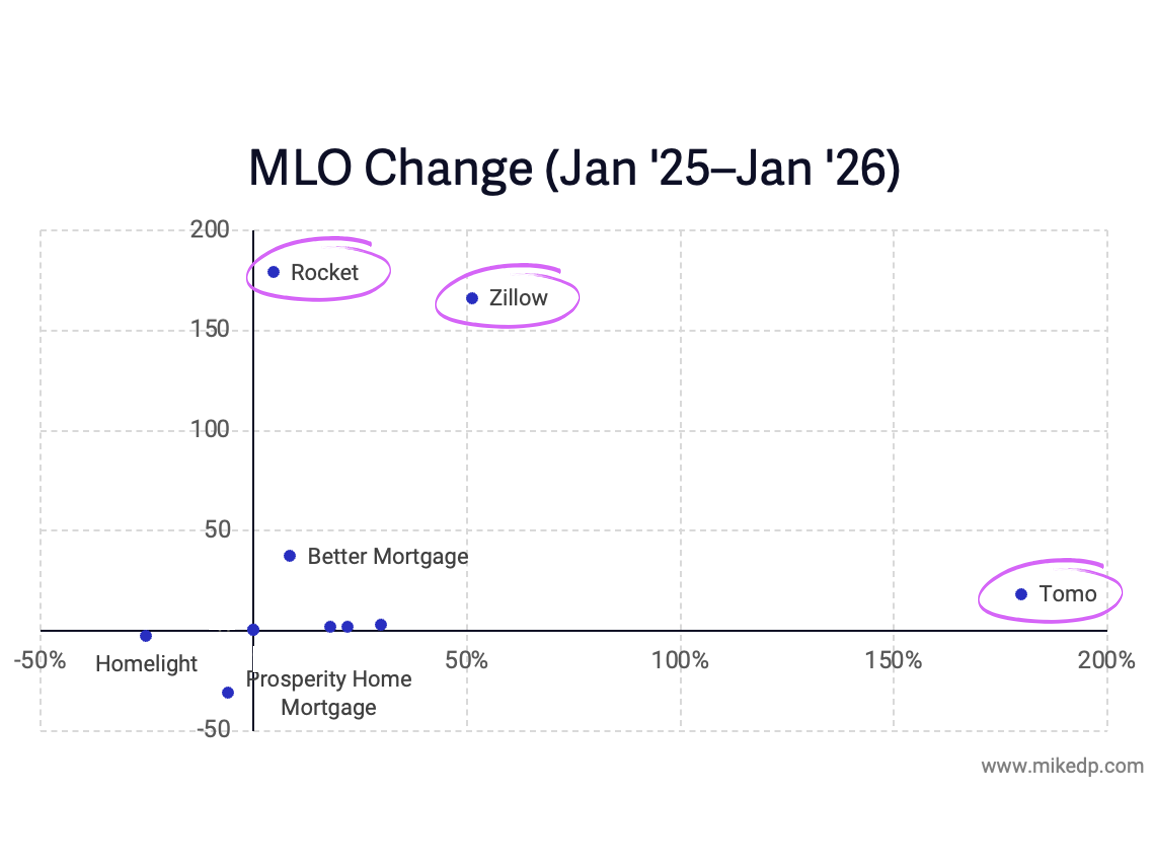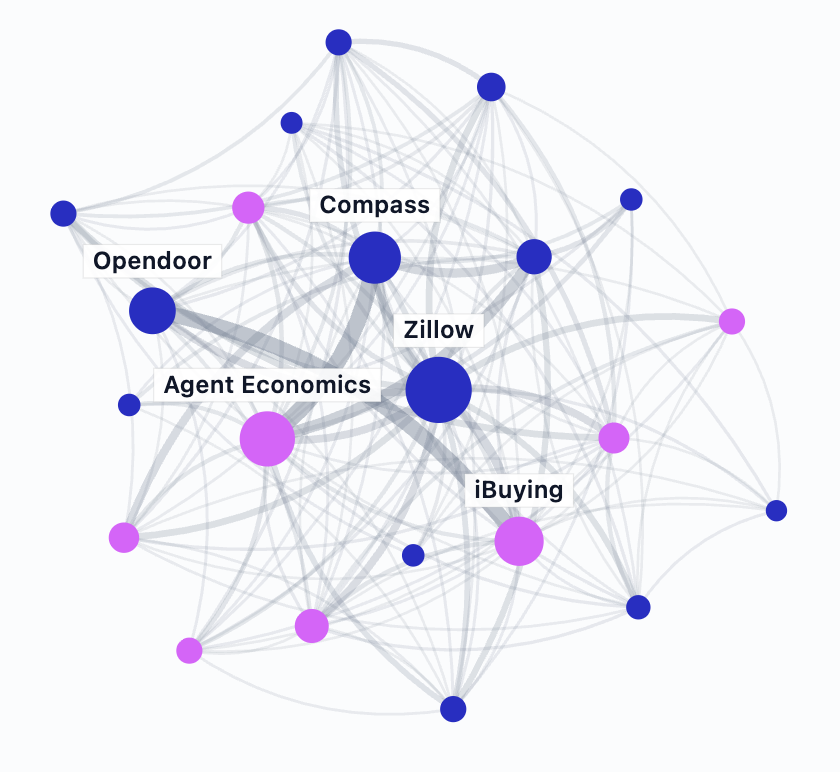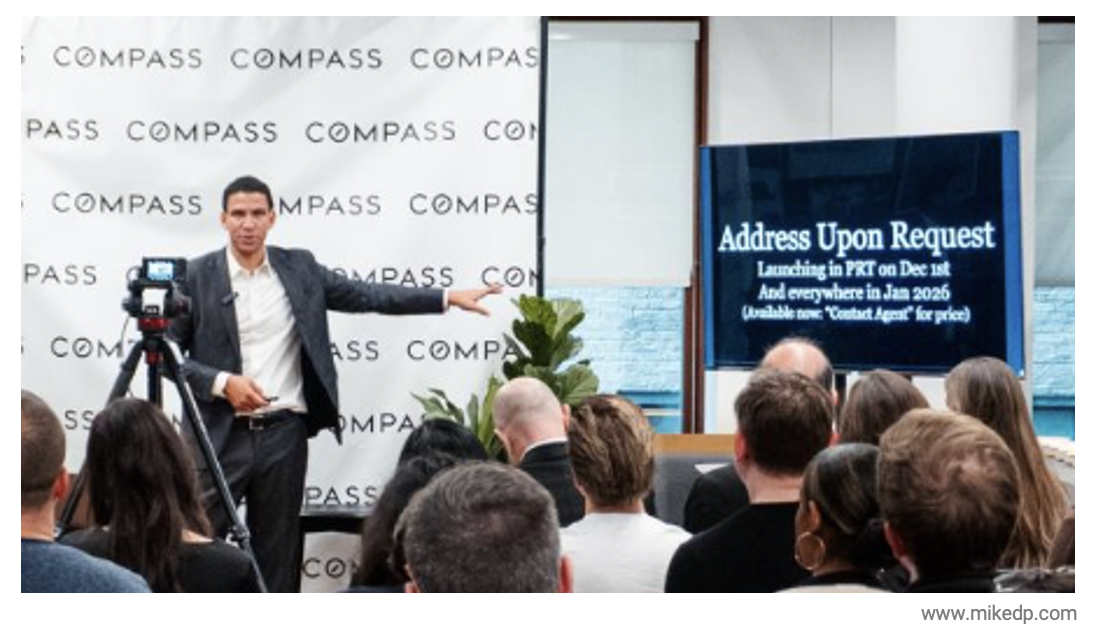Facebook vs. Zillow: A breakdown of Facebook’s real estate strategy and the impact on portals around the world.
/Facebook has always played a supporting role in the marketing portfolio of real estate professionals: historically, agents have been twice as likely to advertise on a listing portal than on social media. For its part, Facebook has never built features that cater directly to real estate consumers and professionals. Earlier this year, that changed—signaling a shift in strategy with major implications for real estate portals.
A month ago, Facebook announced a major update to the “Property Rentals” section on Facebook Marketplace, launching a new front-end that allows mobile users to search for rentals using a variety of new filters: rental type, location, number of bedrooms, pet friendliness and more.
Facebook Marketplace’s Property Rentals
Paired with this product update are new partnerships with Zumper and Apartment List—two of the most prominent online rental platforms, which collectively receive millions of unique visitors a month—which will directly syndicate “hundreds of thousands” of rental listings to Facebook.
This is the second major step that Facebook has taken into residential real estate in three months. September saw the launch of Dynamic Ads for Real Estate, which lets brokerages and real estate websites promote live listings to Facebook users.
What do these features reveal about Facebook’s real estate strategy, and what does Facebook’s growing interest in real estate mean for portals? In this article, we’ll take a closer look at Facebook’s recent moves into residential real estate, assess its motivations and forward-looking roadmap, and discuss the implications for existing players, especially real estate portals.
Facebook and Real Estate
Facebook cemented its status as an important marketing channel for rental managers and real estate agents well before the launch of Property Rentals and Dynamic Ads. On the rental front, Facebook has long hosted groups like Gypsy Housing, home to local classified posts from individuals and small-time landlords renting their property and rental seekers seeking the perfect match. Individual landlords have been able to post listings to Facebook Marketplace since the product’s launch last fall.
But rudimentary search and lack of quality inventory has stopped rentals from really taking off on Marketplace. Though we don’t have precise data from Facebook, this qualitative observation is reinforced by the continued growth of informal housing groups.
On the sale front, real estate agents have used Facebook to build local awareness of their services or conduct targeted promotion of their listings, taking advantage of relatively slim competition to generate strong ROI. When Inman News surveyed agents on their use of Facebook this past September, one agent noted that she once spent $750 on a listing ad that generated six contracts and “hundreds” of leads.
Another agent reports that his average cost per lead from Facebook is around $5, comparing favorably to an average of $100 per lead from Zillow—although that cost per lead has jumped sixfold over the past three years as more agents bid for ad inventory. In general, Facebook has delivered high ROI to agents, but only for those willing to manually upload listings, optimize ad creative and nurture leads over a longer time horizon.
Even without the benefit of any features specific to real estate, Facebook has already captured substantial mindshare among agents, with a September 2017 report by research firm Borrell Associates suggesting that agents are “more likely to buy ads on social media than all other forms of digital media, including listing portals.”
Assessing Facebook’s New Real Estate Features
The revamped Property Rentals section and Dynamic Ads for Real Estate seem like simple optimizations at first blush, but their impact will be substantial.
On the rental front, the product refresh and accompanying listing partnerships are game changers. Syndicating listings from established rental sites—and improving the user experience for renters—will make rental search far more useful on Facebook, attracting users who will ultimately incentivize more landlords to post inventory directly to Facebook.
Facebook isn’t settling for feature parity with powerful incumbents like Craigslist, encouraging landlords to post 360° photos to provide a better sense for what a listing is like.
Facebook is smart to focus on rentals, which are an ideal entry point into residential real estate because competition is fragmented: there is no MLS or single source of truth for rental inventory. By supercharging its network effect through listing syndication and user-side tweaks, Facebook has a shot at replacing Craigslist as the most comprehensive database of rental listings in America.
On the sale side, the launch of Dynamic Ads for Real Estate makes Facebook a far more powerful tool for real estate agents.
Facebook’s Dynamic Ads for Real Estate product
Until now, agents could only target broad audiences, capturing leads with less intent than users actively surfing a real estate portal for homes. By allowing brokerages to upload a catalog of live listings and target users based on their past interaction with specific listings, Facebook lets agents market to users who directly demonstrate affinity for their homes for sale, which should improve lead quality and ROI.
Facebook’s Real Estate Strategy: All About Inventory
What do these new features have in common? Both incentivize suppliers of real estate inventory—property managers and landlords on the rental side, agents and brokers on the sale side—to upload more listings to Facebook.
The fundamental competency of an advertising platform is surfacing the right product or service (in our case, inventory) to the right consumer at the right time (in our case, transactional intent): in other words, identifying a consumer’s need and offering a relevant solution. With more than two billion users between its various products, Facebook is one of the few platforms that already has the right consumer in its grasp—and its real estate strategy targets the other pieces of the equation.
Listing inventory is the bedrock of Facebook’s strategy to capture market share in real estate ad spend. Even if Facebook had perfect knowledge of a consumer’s intent to rent or buy a home, it can only monetize that intent if it has a “product”—a listing—to display.
Accumulating a greater volume and variety of real estate inventory has another major benefit: by giving consumers more opportunities to interact with real estate, Facebook learns more about their preferences and intent, which enables more effective targeting. For example, Dynamic Ads for Real Estate already helps agents automatically target consumers who have visited their websites and browsed their listings. But a strong rental platform allows Facebook to add another powerful targeting tool to the mix, letting them advertise to folks searching for rentals with demographic characteristics that also make them likely buyers.
The more precise targeting options available to agents, the stronger a case Facebook can make to brokers that they should syndicate listings directly to Facebook. This is when things get interesting: if enough agents use Facebook real estate ads in a given market, we can even imagine progressive MLS boards—who have been eager for more leverage against the portals—syndicating listings directly to Facebook.
This presents the billion dollar question: will Facebook attempt to compete directly with real estate portals? We don’t believe Facebook wants to launch map-based real estate search, or turn the Marketplace into a fee-generating product for rental and sale listings. In the short run, Facebook is laser focused on improving its advertising product for real estate professionals and capturing a higher proportion of ad spend from portals.
Things could get worse for portals in the long run. We discuss this in greater detail below, but as Facebook accumulates more inventory and learns how to precisely mate those listings to consumer needs, it may be able to leapfrog map-based search entirely by using natural language queries from the homebuyer and precise algorithms to match users with the perfect home for them.
This won’t happen for years, but inventory would make it possible—and as we’ll discuss below, cultivating and protecting proprietary inventory is one way that portals can fight back.
The Impact on Portals: Competition for Premium Spend
The primary impact of Facebook’s move, in the short- to medium-term, will be increased competition for premium ad dollars from real estate agents. In the U.S., 70 percent of Zillow’s revenue comes from real estate agents, and the trend extends to each major international market.
Facebook’s entry into real estate advertising represents clear and direct competition for this premium spend. Real estate agents will have another top-tier platform to spend money on to generate additional branding for themselves, generate leads, or promote the homes they are selling. Premium spend usually has no upper limit; agents can spend as much as they want to promote themselves or their listings.
Zillow Reacts: Premier Agent Direct
Facebook launched its Dynamic Ads for Real Estate product last August. Two months later, Zillow announced a partnership with Facebook and “Premier Agent Direct,” an advertising product that pushes ads directly to Facebook.
Zillow’s reaction is straight-forward: the move gives it a seat at the table. With Facebook’s potential competition in the space, Zillow has decided the best way to stay relevant is to embrace the new Facebook advertising product and offer it to its existing customers.
Zillow’s Premier Agent Direct product
At the time, Zillow said it “wasn’t just buying ads and reselling them.” In reality, that’s exactly what it’s doing, but with the benefit of using Zillow’s user data to improve relevance and targeting. Zillow has assumed the role of a middle man. Agents can go directly to Facebook to spend their ad dollars, or they can continue spending with Zillow and get exposure on Facebook. It’s a win-win where Zillow stays relevant, Facebook generates ad revenue, and agents maximise their exposure across multiple channels.
Each option has its own benefits. Buying ads directly from Facebook gives agents more control and highlights their brand, compared to a co-branded experience through Zillow.
For Agents: Buying from Facebook vs. Buying from Zillow
The Two Key Strategic Pivot Points
Facebook’s entry into real estate will illuminate two key strategic pivot points, around which the Facebook vs. real estate portal competition will focus.
The first strategic pivot revolves around the user experience, pitting search vs. match. The current consumer experience on real estate portals is focused around searching and browsing. Visitors scan a map, enter search criteria, or browse through featured listings. It’s the equivalent of flipping through a glossy magazine or scanning the pages of a newspaper classified section.
The very nature of the Facebook product lends itself to matching experience. Real estate listings will be targeted to consumers based on what Facebook knows about them (in the same way it already targets advertising). This targeting is among the most sophisticated in the business given the amount of information Facebook knows about its users. The majority of Facebook users won’t be searching for real estate; they will see real estate presented to them.
The second key strategic pivot is all-of-market vs. some-of-market. Real estate portals maintain their reputation as the best place to find a home because they have all of the inventory available in the market. When a consumer is searching for a new home, they want to look where all of the properties for sale are available.
Facebook’s marketplace strategy, on the other hand, is not predicated on having all of the available real estate listings. At least for the foreseeable future, the listings available will be those uploaded by its advertising clients. So while the consumer experience on Facebook will target and match listings directly to visitors, it won’t represent the entire market of possible houses for sale.
This leaves a competitive opening for real estate portals. As long as the portals have a greater inventory than Facebook (which we believe will be true in the medium-term), their benefit to consumers is clear. Do you want access to all of the market or only some of the market?
Strategic Options For Real Estate Portals
Facebook represents a clear and present danger for real estate portals around the world. It’s here, it’s growing, and it’s coming to eat your lunch.
Competitive Advantages: Facebook vs. Real Estate Portals
We believe a response strategy should center around the following:
- Focus on providing value to agents. Deliver utility throughout the value chain and offer a more complete solution. Agents who get red-carpet treatment, free call center service, and unique online products will be less likely to defect. Ultimately the game is about delivering ROI, so push hard to deliver more value to your customers.
- Act local and leverage your sales team. Real estate is national. Real estate portals have the local knowledge, relationships, and brand that are necessary to thrive in the market. By building your local indispensability to the market you compete in an area where Facebook cannot.
- Sell Facebook’s ad product. Adopting Zillow’s strategy is controversial. Consider that Facebook already has an ad product for real estate agents, it already demonstrates good ROI, and agents are already spending money on the platform. In five years, will that still be the case, or will Facebook simply go away? We’re betting that it’s here to stay, and it will only get bigger, with or without the cooperation of real estate portals. So get on board while you can and leverage your local muscle to sell Facebook’s offering to your customers.
- Explore "match." If and when the buyer experience moves toward a matching experience, have a product that matches buyers with homes. Don’t be left flat-footed if consumer preferences change.
- Don’t compete on social. If you’re considering how to compete with Facebook through social products, you’re naively barking up the wrong tree. The absolute last thing you should do is compete with Facebook where it is strongest.
Concluding Thoughts
Facebook’s deeper move into real estate—both in rentals and for sale listings—represents an opportunity for agents and brokerages and a strategic threat to a range of existing businesses. For real estate portals in particular, the first battleground is agent premium spend. Facebook is giving agents a new, powerful choice for where to spend money on leads.
This situation poses a dilemma for real estate portals. Do they cooperate with Facebook as “frenemies,” as Zillow has done, or do they work to stifle Facebook’s momentum at all costs?
It is our belief that Facebook is here to stay in real estate, and will continue providing a positive ROI to agents looking for leads. In the near term, real estate portals need to take action to cement their position as the best place to advertise properties for sale and for agents to generate leads. The good news, for portals, is that they have a fighting chance.
This article was written by Mike DelPrete and Sib Mahapatra. Mike DelPrete is a strategic adviser and global expert in real estate tech. Connect with him on LinkedIn. Sib Mahapatra is an entrepreneur and real estate tech enthusiast based in New York City. You can reach him on LinkedIn.

















